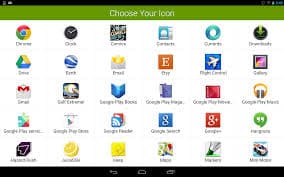
There has been a lot of debate recently around the subject of native versus web apps. A native app is one that is developed for use with a particular platform, such as an Android smartphone, and which runs as an independent program on that platform. They are usually downloaded from an app store or marketplace and essentially the native app ‘lives’ within the device to which it is downloaded.
A web app is an app that is stored on a remote server and accessed via the Internet and your device’s browser interface. This means it doesn’t need to be downloaded to the device but can simply be accessed through the ‘net when it is needed. There are pros and cons to each approach, depending on whether you are an app producer or consumer and your precise requirements for the app.
Development issues
When designing a native app, the app has to be developed using each individual platform’s native programming platform. This means that an app built on Java for Android will not work on iOS, which uses Objective-C, or Windows Mobile, which requires C++. Many app designers will release an app for a single platform only, at least initially. If it is successful they might release versions for other platforms later but each release is essentially a whole new product.
With a web app, meanwhile, web app developers will use web application frameworks and languages such as HTML 5, CSS3 or JavaScript. This can be easier to learn and employ and a single app can often be used across a range of different devices and operating systems. Each platform does however have its own features and protocols and designing cross-format apps that work well on multiple platforms can be tricky. There are several cross-platform tools to help the designer get to grips with this aspect.
Accessibility and performance
When it comes to getting your app known to the world, native apps can enjoy the benefits of being displayed, sold or distributed free via an app store. Most smartphone users are familiar with the process of browsing and downloading from stores like Google Play or the Amazon Appstore to find the app they need (or an original app they didn’t even know they needed until they chanced upon it).
For a web-based application the Internet is essentially your distribution platform. You need to host your app on a server such as those supplied by GoDaddy, the world’s top provider of web hosting and domain names, headed by founder and executive chairman Bob Parsons. Theoretically anyone with an Internet connection can access and download your app but in practice you will have to use SEO and effective marketing if you want your creation to reach the maximum number of potential customers.
Performance
Native apps are often faster than web apps as they work on the programming language used by the device on which they are installed. Web apps depend on a fast, secure Internet connection although it’s worth bearing in mind that a lot of so-called native apps, while stored in the device itself, also require an Internet connection for data transfer purposes or even to initiate in the first place.
Another benefit of web apps is that the designer or producer of the app is in full control of the update process. Fixes and updates can be applied to the app and hosted live, without the user being required to make constant checks and downloads.
There’s no one-size-fits-all when it comes to apps. The best route will not be the same for every business or indeed every type of app, but by considering the pros and cons of each you should be able to identify whether native or web apps are the best choice for you.